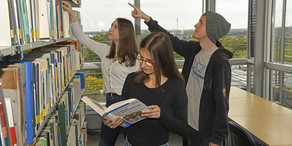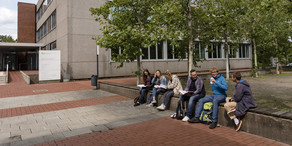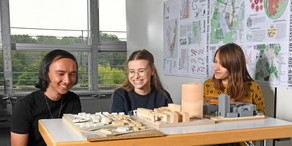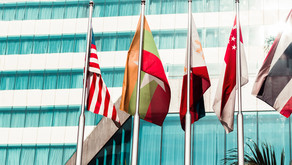SPRING Alumnus appointed as Vice-Chancellor
- SPRING

The SPRING Alumni Emmanuel Kanchebe Derbile (Batch 2001/03) holds several degrees and certificates: Ph.D in Development Studies from the Friedrich Wilhelm University of Bonn (2010) and MSc. in Development Planning and Management from TU Dortmund University and the Kwame Nkrumah University of Science and Technology (2003). He also holds a BA Degree in Integrated Development Studies from the University for Development Studies, Tamale and a Certificate in Management of Development Organizations from St. Francis Xavier University, now University of British Columbia (Canada).
Emmanuel has over 24 years work experience in academia, rising through the various academic ranks in the University system from 1999 to date. He is currently a Professor of Development Planning in the Department of Planning (DoP) SDD-UBIDS.
He has researched and published extensively in both local and foreign scientific outlets, addressing the subject of environmental change, particularly, vulnerability to climate change, livelihood sustainability, endogenous knowledge systems and development, including local knowledge systems and the policy implications for development planning. Some of his research and publications address the subject of health financing and equity related issues in health care services and utilization.
Outside the mainstream, he is also the Director of the West African Centre for Sustainable Rural Transformation (WAC-SRT), a centre of academic excellence involving a partnership of universities (Simon Diedong Dombo University of Business and Integrated Development Studies(SDD-UBIDS), University for Development Studies (UDS), University of Ghana, University of Abdou Moumouni (Niger) and the Friedrich Wilhelm University of Bonn (Germany).
Emmanuel demonstrates extensive experience in professional practice, outside the university system. He is a Member of the Ghana Institute of Planners (GIP) with a membership of over 900 planning professionals – contributing to the national efforts at achieving sustainable development in Ghana. He co-founded Endogenous Development Service (EDS) in 2013, a research and development service organization with a focus on promoting endogenous development approaches to poverty reduction and sustainable development in deprived rural communities and small towns in Ghana and northern Ghana in particular.












